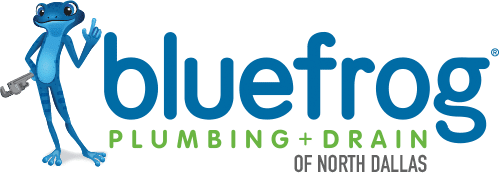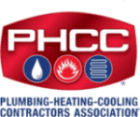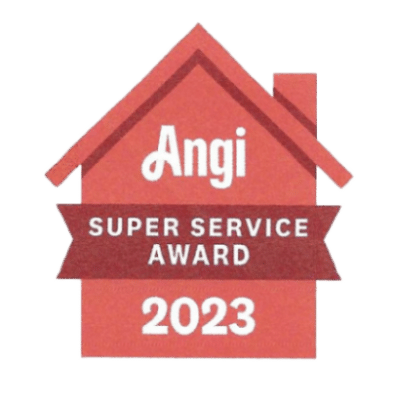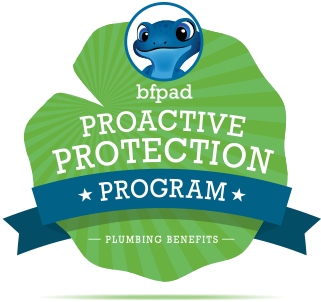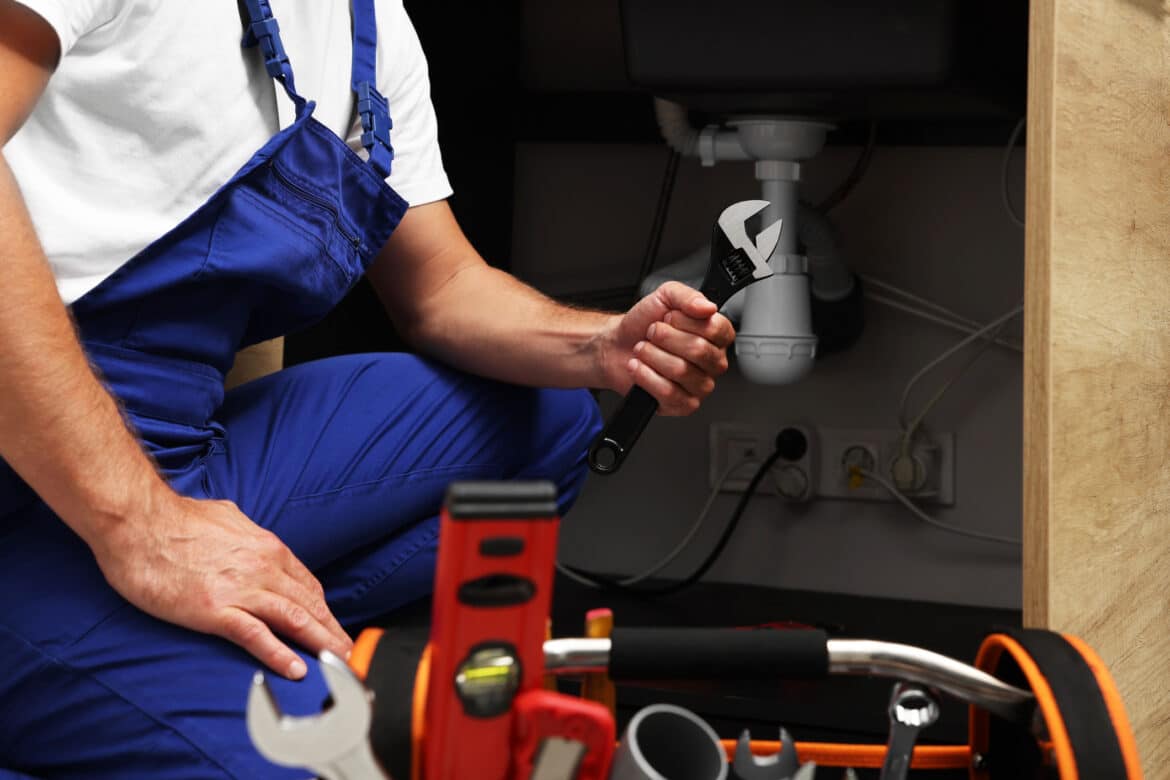
A 2024 Plumbing Maintenance Guide
Why Plumbing Maintenance is Essential
- Prevents Major Repairs: Regular checks can spot small problems before they escalate into major, costly repairs.
- Saves Money: Efficient systems use less water, lowering monthly water bills.
- Extends Appliance Lifespan: Properly maintained plumbing systems and fixtures last longer, reducing the frequency of replacements.
- Improves Water Quality: Regular maintenance ensures that your water system is clean and free of contaminants.
Monthly Plumbing Tasks
- Inspect for Leaks: Check all exposed pipes and fixtures for leaks. Even a small drip can waste a significant amount of water over time.
- Clean Faucets and Showerheads: Remove any mineral deposits to ensure optimal water flow.
- Check Under Sinks: Ensure there are no leaks and that pipes are not deteriorating.
Quarterly Plumbing Tasks
- Test Water Pressure: Too high or too low water pressure can indicate underlying problems in your plumbing system.
- Clean Drains: Use a natural cleaner like baking soda and vinegar to clear buildup in drains to prevent clogs.
- Inspect Toilet Tank and Bowl: Check for cracks or leaks. Also, test the flush mechanism to ensure it operates smoothly.
Annual Plumbing Maintenance
- Service Your Water Heater: Flush the tank to remove sediment, check the pressure relief valve, and inspect the anode rod to prolong the unit’s lifespan.
- Inspect Sewer System: Consider a professional inspection of your sewer line to ensure there are no potential blockages or damage.
- Check Outdoor and Exposed Plumbing: Before winter, ensure that outdoor faucets and sprinkler systems are drained and covered.
Seasonal Plumbing Tips
Spring
- Inspect for Freeze Damage: Check for any damage caused by freezing.
- Check Gutters and Downspouts: Clear debris to ensure proper drainage.
- Service the HVAC System: Ensure your AC is ready for summer, as HVAC issues can affect plumbing systems.
Summer
- Monitor for Leaks: Increased water use can lead to plumbing stress.
- Check Irrigation Systems: Regular maintenance on your irrigation system can prevent leaks and overwatering.
- Evaluate Sump Pump: Test your sump pump regularly, especially before the rainy season.
Fall
- Prepare for Winter: Insulate exposed pipes to prevent freezing.
- Drain Outdoor Faucets: Prevent pipes from bursting by draining outdoor fixtures.
- Service Heating Systems: Pre-winter maintenance on your heating system can prevent unexpected issues during cold weather.
Winter
- Keep the House Warm: Maintain a minimum indoor temperature to prevent pipes from freezing.
- Open Cabinet Doors: This allows warmer air to circulate around plumbing, especially in the kitchen and bathrooms.
- Regularly Check for Ice and Snow Buildup: Ensure vents and pipes are not blocked.
Signs You Need Professional Help
- Unexplained Increase in Water Bills: Could indicate a hidden leak.
- Persistent Clogs: Recurring or multiple clogged drains might point to a severe blockage deep within the main line.
- Water Pressure Problems: Sudden loss of pressure could stem from a major issue in your water line.
Have you ever wondered how regular plumbing maintenance can save you money?
Keeping your plumbing in top shape can prevent costly repairs and water damage. This guide will help you understand the importance of routine checks and provide a comprehensive look at maintaining your plumbing system.
Regular plumbing maintenance ensures your home’s plumbing system runs efficiently. It helps prevent common issues such as leaks, clogs, and water pressure problems. With proper care, you can extend the lifespan of your fixtures and appliances, saving you time and money in the long run.
In this guide, we’ll explore various plumbing maintenance tasks you can perform monthly, quarterly, and annually. We’ll also discuss seasonal plumbing maintenance to keep your plumbing ready for any weather.

Importance of Regular Plumbing Maintenance
Why is regular plumbing maintenance crucial for homeowners? Routine plumbing maintenance can prevent minor issues from becoming major problems. It helps maintain the efficiency and longevity of your plumbing system, saving you money and hassle.
Preventive Measures: Regular plumbing checks help identify potential problems early. Small leaks or clogs, if left unattended, can lead to significant damage, costing you a lot more in repairs. By addressing these issues early, you can avoid emergencies and the stress that comes with them.
Cost Savings: Preventive plumbing maintenance is often more cost-effective than emergency repairs. For instance, a small leak can be fixed easily and inexpensively, but if ignored, it can cause water damage to your home. This can result in higher repair costs, including fixing walls, floors, and even electrical systems affected by the leak.
Improved Efficiency: Regular plumbing maintenance ensures that your plumbing system operates at peak efficiency. This means less water waste and lower utility bills. For example, a well-maintained water heater uses less energy, reducing your energy bills.
Extended Lifespan: Taking care of your plumbing system extends the lifespan of your pipes, fixtures, and appliances. Routine plumbing maintenance, such as cleaning aerators and checking for corrosion, keeps everything in good working condition, delaying the need for replacements.
Health Benefits: Proper plumbing maintenance also ensures that your water supply remains clean and safe. Leaks and standing water can lead to mold growth, which can pose health risks. Keeping your plumbing system in good shape helps maintain a healthy living environment.
Benefits of Preventive Plumbing Maintenance
Have you considered the long-term benefits of preventive plumbing maintenance?
Regular upkeep offers numerous advantages that go beyond just avoiding emergency repairs. Here are some key benefits that highlight why preventive plumbing maintenance is a smart choice for homeowners.
- Cost Efficiency: Regular plumbing maintenance can save you money by reducing the need for costly repairs. Small issues like minor leaks or blockages can be fixed easily and cheaply if caught early. Preventive maintenance helps avoid large-scale damages that are expensive to repair.
- Enhanced System Efficiency: A well-maintained plumbing system operates more efficiently. This means less water and energy wastage, which translates to lower utility bills. For instance, regularly flushing your water heater can improve its efficiency, reducing your energy costs.
- Increased Lifespan of Plumbing Fixtures: Regular plumbing maintenance helps extend the lifespan of your plumbing fixtures and appliances. By keeping your pipes, faucets, and other fixtures in good condition, you delay the need for replacements, saving you money in the long run.
- Health and Safety: Preventive plumbing maintenance ensures your water supply remains clean and safe. Leaks and standing water can lead to mold and mildew, which pose health risks. Regular checks and repairs help maintain a healthy living environment.
- Reduced Risk of Emergencies: Routine plumbing maintenance reduces the likelihood of plumbing emergencies. By addressing potential problems before they become serious, you minimize the risk of sudden breakdowns and water damage. This means fewer disruptions and a more comfortable home life.
Seasonal Plumbing Maintenance: Spring
Spring is the perfect time to address plumbing tasks that prepare your home for the warmer months. Here are essential spring maintenance tasks to keep your plumbing system in top shape.
- Gutter Inspection and Cleaning: After winter, your gutters can be filled with debris such as leaves and twigs. Clean out all debris to ensure proper water flow. Inspect for any damage caused by winter weather. Repair any leaks or sagging sections to prevent water damage to your home’s foundation.
- Checking Outdoor Spigots and Pool Systems: Winter can cause outdoor spigots to crack or leak. Turn on the water and check for leaks. If you notice any issues, replace the spigot or call a professional. If you have a pool, inspect the plumbing for any signs of damage. Clean the filters and ensure all components are working correctly before use.
- Inspecting Sprinkler Systems: Turn on your sprinkler system and inspect for any leaks or malfunctioning sprinkler heads. Replace any damaged parts and adjust the settings to ensure even water coverage. This helps maintain a healthy lawn and conserves water.
- Checking for Signs of Water Damage: Spring is a good time to check for any signs of water damage inside your home. Look for water stains on ceilings and walls, which could indicate a leak. Inspect your basement or crawl space for dampness or mold growth. Address any issues immediately to prevent further damage.
- Testing Sump Pumps: Spring showers can lead to basement flooding. Test your sump pump by pouring water into the sump pit. Ensure the pump activates and removes the water efficiently. Consider a backup sump pump or battery-powered option to protect your home during heavy rains.
- Inspecting the Main Sewer Line: Tree roots can infiltrate your sewer line, causing blockages. Schedule a professional inspection of your main sewer line in spring. Early detection of root intrusion can save you from costly repairs and prevent sewage backups.
Seasonal Plumbing Maintenance: Summer
Summer brings its own set of challenges and opportunities for maintaining your plumbing system. Here are the essential summer maintenance tasks to ensure everything runs smoothly during the hottest months.
- Detecting Underground Leaks: During summer, it’s crucial to check for underground leaks, especially if you notice unusually green or soggy patches in your yard. Inspect your water meter for continuous movement when no water is being used. If you suspect a leak, contact a professional to locate and repair it. Early detection can save you from higher water bills and further damage.
- Maintaining Lawn Sprinkler Systems: Your lawn sprinkler system works overtime in the summer. Inspect all sprinkler heads for proper operation and coverage. Clean or replace any clogged nozzles and adjust the direction to ensure even watering. Check for leaks in the system, which can waste water and increase your bills. Regular maintenance keeps your lawn healthy and conserves water.
- Checking and Insulating Exposed Pipes: Summer heat can cause exposed pipes to expand and contract, leading to potential leaks. Inspect these pipes for any signs of wear or damage. Insulate pipes to protect them from extreme temperatures, which helps maintain efficiency and prevent leaks.
- Monitoring Water Heater Performance: Your water heater works hard year-round. Check the temperature settings and ensure it’s at the recommended 120 degrees Fahrenheit. Inspect for any leaks or signs of corrosion. Flushing the tank to remove sediment buildup can improve efficiency and extend the unit’s lifespan.
- Inspecting Washing Machine Hoses: Summer often means more laundry with outdoor activities and vacations. Inspect washing machine hoses for any signs of wear, cracks, or leaks. Replace hoses every three to five years, or sooner if you notice any damage. This simple task can prevent a major water leak and subsequent damage.
- Cleaning and Checking Outdoor Drains: Summer storms can bring heavy rain, making it essential to keep outdoor drains clear. Remove any debris such as leaves and dirt from drain grates. Ensure water flows freely through gutters and downspouts to prevent backups and potential flooding.
Seasonal Plumbing Maintenance: Fall
Fall is the perfect time to prepare your plumbing for the colder months ahead. By taking care of these essential tasks, you can prevent potential problems during winter.
- Winterizing Outdoor Faucets: One of the most critical fall tasks is to winterize your outdoor faucets. Disconnect and drain all hoses. Shut off the water supply to outdoor faucets from the inside and open the faucets to let any remaining water drain out. This prevents the pipes from freezing and bursting during winter.
- Insulating Pipes in Unheated Areas: Pipes in unheated areas like basements, attics, and garages are vulnerable to freezing temperatures. Insulate these pipes with foam pipe insulation to prevent freezing and bursting. Pay special attention to any exposed pipes and ensure they’re adequately protected.
- Cleaning Gutters and Downspouts: Fall leaves can clog your gutters and downspouts, leading to water damage and ice dams in winter. Clean out all debris from gutters and ensure downspouts direct water away from your home’s foundation. This helps prevent water from pooling around your home and causing damage.
- Checking and Maintaining Sump Pumps: With increased rainfall in fall, your sump pump needs to be in top condition. Test the sump pump by pouring water into the sump pit to ensure it activates and removes the water efficiently. Consider installing a battery backup system to keep the pump running during power outages.
- Inspecting Water Heater: Before the cold weather hits, inspect your water heater for any signs of leaks or corrosion. Check the temperature setting and ensure it’s at 120 degrees Fahrenheit. Flush the tank to remove sediment buildup, which can reduce efficiency and lifespan.
- Sealing Cracks and Gaps: Inspect your home for any cracks or gaps around pipes entering your house. Seal these gaps with caulk or foam insulation to prevent cold air from entering and warm air from escaping. This helps maintain a stable temperature in your home and protects your pipes from freezing.
Seasonal Plumbing Maintenance: Winter
Winter brings freezing temperatures that can cause significant plumbing issues. Proper preparation and plumbing maintenance during the winter months can prevent costly repairs and ensure your plumbing system runs smoothly.
- Preventing Frozen Pipes: Frozen pipes are a common problem in winter. Insulate pipes in unheated areas like basements, attics, and garages. Let faucets drip slightly to keep water moving and prevent freezing. Open cabinet doors under sinks to allow warm air to circulate around the pipes.
- Maintaining Indoor Heating Systems: Your heating system works hard during winter to keep your home warm and prevent pipes from freezing. Schedule a professional inspection of your heating system to ensure it’s operating efficiently. Replace air filters regularly and keep vents clear of obstructions for optimal airflow.
- Inspecting and Repairing Pipe Insulation: Check the insulation on all exposed pipes for signs of wear or damage. Replace any worn or damaged insulation to protect the pipes from freezing temperatures. Proper insulation can prevent costly pipe bursts.
- Winterizing Outdoor Plumbing: Ensure all outdoor plumbing is winterized. Disconnect and store garden hoses, and drain water from outdoor faucets. Use faucet covers to protect outdoor spigots from freezing temperatures. If you have an irrigation system, ensure it is properly drained and winterized.
- Monitoring Water Pressure: Keep an eye on your water pressure during winter. Low water pressure can indicate a frozen pipe. If you notice a sudden drop in pressure, inspect your pipes for signs of freezing. Addressing the issue early can prevent a pipe burst.
- Keeping Drains Clear: Avoid pouring grease, oil, or food scraps down the kitchen sink, as they can solidify in cold pipes and cause blockages. Run hot water down the drain after each use to keep pipes clear. Consider using a drain guard to catch debris and prevent clogs.
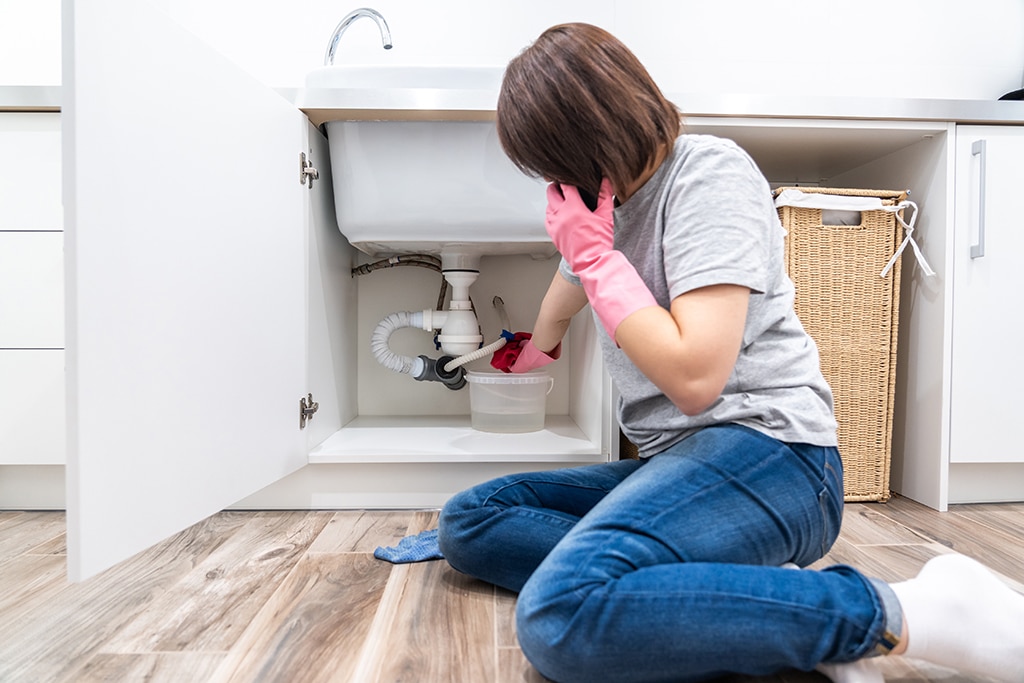
When to Call a Plumber
Not all plumbing issues can be handled with DIY solutions. Knowing when to call a professional plumber can save you time, money, and frustration. Here are some situations where it’s best to seek expert help.
- Persistent Clogs: If you experience recurring clogs in your sinks, toilets, or showers, it’s a sign of a deeper issue within your plumbing system. A professional plumber can identify and fix the root cause, ensuring the problem doesn’t return.
- Low Water Pressure: Low water pressure can be caused by various issues, such as pipe blockages, leaks, or problems with the municipal water supply. A plumber can diagnose and resolve the issue, restoring your water pressure to normal levels.
- Water Heater Problems: Issues like inconsistent water temperature, strange noises, or leaks around your water heater require professional attention. A plumber can repair or replace faulty components, ensuring your water heater operates efficiently.
- Sewer Line Issues: Signs of sewer line problems include slow drains, foul odors, and sewage backups. These issues can cause significant damage to your property if not addressed promptly. A plumber can perform a thorough inspection and repair or replace damaged sewer lines.
- Leaks and Water Damage: If you notice water stains on your walls or ceilings, or if you hear the sound of running water when no faucets are on, you likely have a hidden leak. A plumber can locate and fix the leak, preventing further water damage and mold growth.
- Burst Pipes: A burst pipe can cause extensive water damage in a short amount of time. If you experience a burst pipe, shut off the main water supply and call a plumber immediately to repair the pipe and mitigate the damage.
- Remodeling Projects: If you’re planning a bathroom or kitchen remodel that involves moving or installing new plumbing fixtures, it’s best to hire a professional plumber. They can ensure the new installations comply with local codes and function correctly.
- No Hot Water: If you suddenly have no hot water and your water heater is not the issue, the problem may lie in the plumbing system. A professional plumber can diagnose and fix the problem, restoring your hot water supply.
Finding Reliable Plumbing Services in Plano, Prosper, and Addison
Finding a reliable plumber can be challenging, but knowing what to look for can make the process easier. Here are some tips to help you find trustworthy plumbing services in Plano, Prosper, and Addison.
- Check for Licensing and Insurance: Ensure the plumber you hire is licensed and insured. This protects you in case of any accidents or damages during the repair process. Licensed plumbers have the necessary training and knowledge to perform plumbing work safely and correctly.
- Read Reviews and Ask for References: Look for reviews online to see what previous customers have to say about their experiences. Ask the plumber for references and contact them to learn more about the quality of their work and customer service.
- Get Multiple Estimates: It’s a good idea to get estimates from several plumbers before making a decision. This allows you to compare prices and services, ensuring you get the best value for your money. Be wary of estimates that are significantly lower than others, as this can indicate subpar work or hidden fees.
- Ask About Warranties and Guarantees: A reputable plumber should offer warranties or guarantees on their work. This provides you with peace of mind knowing that if something goes wrong after the repair, the plumber will address the issue without additional charges.
- Look for Experience: Experience matters when it comes to plumbing. Look for a plumber with several years of experience in the industry. Experienced plumbers are more likely to have encountered a wide range of plumbing issues and know how to solve them efficiently.
- Consider Availability: Plumbing emergencies can happen at any time. Choose a plumber who offers 24/7 emergency services. This ensures you can get help quickly when you need it most.
- Evaluate Communication and Professionalism: Pay attention to how the plumber communicates with you. Are they prompt in responding to your inquiries? Do they explain the problem and the proposed solution clearly? Professionalism and good communication are indicators of a reliable plumber.
FAQs about Plumbing Maintenance
- How often should I inspect my plumbing?
Regular inspections are crucial for maintaining a healthy plumbing system. Perform a thorough inspection every few months, and have a professional inspect your plumbing annually. This helps identify potential problems early and prevents costly repairs.
- What are signs of a serious plumbing issue?
Signs of a serious plumbing issue include persistent clogs, low water pressure, unusual noises from pipes, foul odors, water stains on walls or ceilings, and slow-draining sinks. If you notice any of these signs, contact a professional plumber immediately to avoid further damage.
- Can I perform all maintenance tasks myself?
While many plumbing maintenance tasks can be done yourself, such as cleaning drains and inspecting hoses, some tasks require professional expertise. Issues like water heater problems, sewer line issues, and major leaks should be handled by a licensed plumber to ensure safe and effective repairs.
- How can I prevent frozen pipes in winter?
To prevent frozen pipes, insulate pipes in unheated areas, let faucets drip slightly to keep water moving, and open cabinet doors to allow warm air to circulate around pipes. Disconnect and drain outdoor hoses and use faucet covers to protect outdoor spigots.
- What should I do if I have a plumbing emergency?
In a plumbing emergency, shut off the main water supply immediately to prevent further damage. For issues like burst pipes, severe leaks, or sewage backups, contact a professional plumber right away. Having a plumbing emergency kit on hand, including a wrench and plumber’s tape, can help you manage the situation until help arrives.

